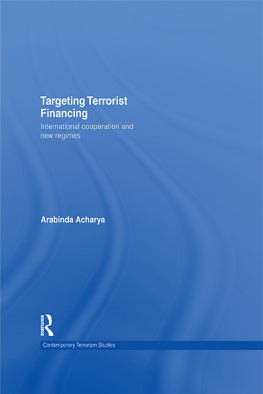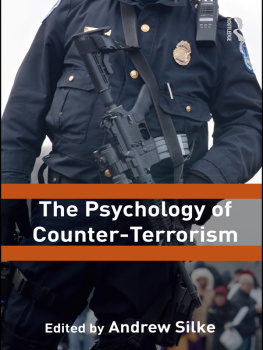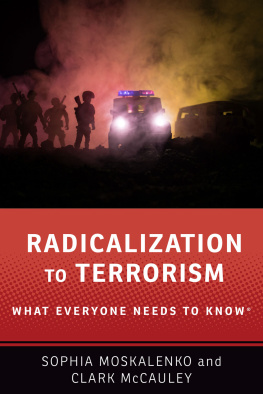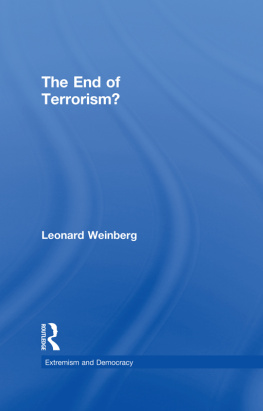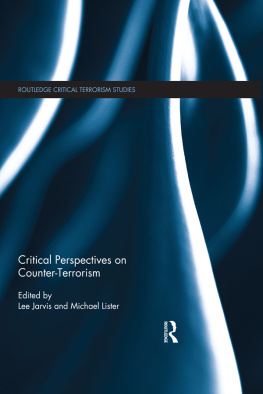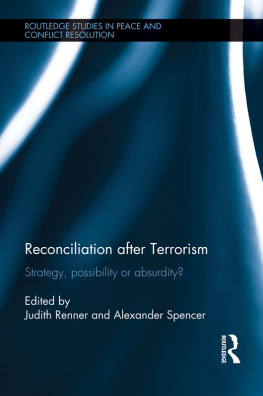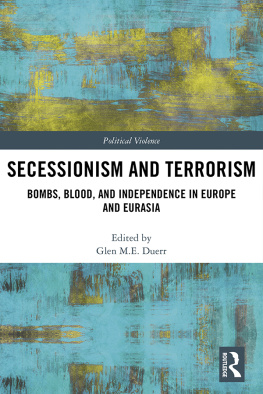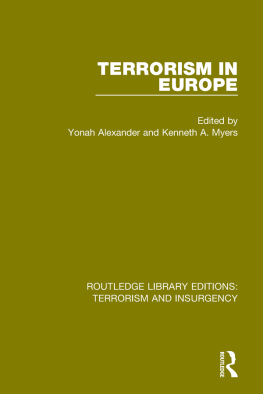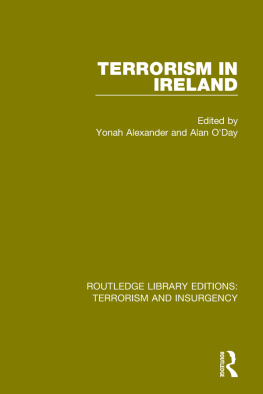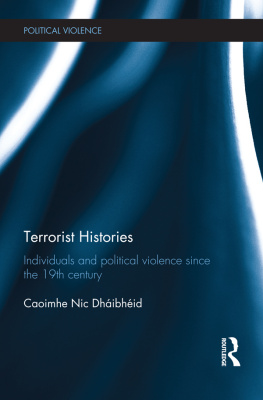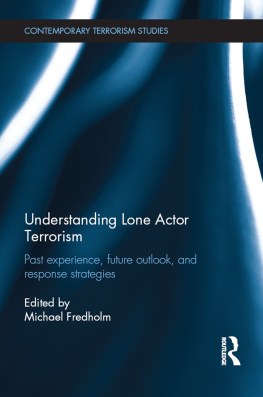Disengaging from Terrorism
This book presents an in-depth case study of 13 individuals who moved away from terrorist activity in Turkey. Setting their life stories in the context of political violence in support of Kurdish independence and a leftist revolution, and the response of the Turkish state, the book examines how the individuals were motivated to become involved in terrorism, how they participated, why they became disillusioned, and above all how they coped with the difficult process of disengagement. The book then draws out general lessons on how individuals can be encouraged to move away from terrorism, and especially on how states can construct repentance mechanisms, and protection mechanisms, to assist with this. The book is a particularly rich, valuable source on why people move away from terrorism as most books in the field concentrate on why people become terrorists, and on terrorist profiling.
Kamil Ylmaz is Chief Superintendent in the Turkish National Police. He completed his doctorate at Columbia University, USA.
Routledge Transnational Crime and Corruption Series
Published in association with the Terrorism, Transnational Crime and Corruption Center, School of Public Policy, George Mason University, USA
Russian Business Power
The role of Russian business in foreign and security relations
Edited by Andreas Wenger, Jeronim Perovic and Robert W. Orttung
Organized Crime and Corruption in Georgia
Edited by Louise Shelley, Erik Scott and Anthony Latta
Russias Battle with Crime, Corruption and Terrorism
Edited by Robert W. Orttung and Anthony Latta
Human Trafficking and Human Security
Edited by Anna Jonsson
Irregular Migration from the Former Soviet Union to the United States
Saltanat Liebert
Human Security, Transnational Crime and Human Trafficking
Asian and Western perspectives
Edited by Shiro Okubo and Louise Shelley
Labour Migration, Human Trafficking and Multinational Corporations
The commodification of illicit flows
Edited by Ato Quayson and Antonela Arhin
Environmental Crime and Corruption in Russia
Federal and regional perspectives
Edited by Sally Stoecker and Ramziya Shakirova
Disengaging from Terrorism
Lessons from the Turkish Penitents
Kamil Ylmaz
Disengaging from Terrorism
Lessons from the Turkish Penitents
Kamil Ylmaz
First published 2014
by Routledge
2 Park Square, Milton Park, Abingdon, Oxon, OX14 4RN
and by Routledge
711 Third Avenue, New York, NY 10017
Routledge is an imprint of the Taylor & Francis Group, an informa business
2014 Kamil Ylmaz
The right of Kamil Ylmaz to be identified as author of this work has been asserted by him in accordance with the Copyright, Designs and Patent Act 1988.
All rights reserved. No part of this book may be reprinted or reproduced or utilised in any form or by any electronic, mechanical, or other means, now known or hereafter invented, including photocopying and recording, or in any information storage or retrieval system, without permission in writing from the publishers.
Trademark notice: Product or corporate names may be trademarks or registered trademarks, and are used only for identification and explanation without intent to infringe.
British Library Cataloguing in Publication Data
A catalogue record for this book is available from the British Library
Library of Congress Cataloging in Publication Data
Kamil Ylmaz.
Disengaging from terrorism : lessons from the Turkish penitents / Kamil Ylmaz.
pages cm. (Routledge transnational crime and corruption ; 9)
Includes bibliographical references and index.
1. Terrorism Turkey. 2. Kurds Civil rights Turkey. 3. Terrorism Turkey Prevention. 4. Terrorists Turkey. 5. Turkey Politics and government 19806. Partiya Karkern Kurdistan. I. Title.
HV6433.T92Y55 2014
363.32509561dc23 |
2013040866 |
ISBN: 978-0-415-71904-9 (hbk)
ISBN: 978-1-315-86770-0 (ebk)
Typeset in Times New Roman
by HWA Text and Data Management, London
Contents
Kamil Ylmaz has a PhD in applied (political) anthropology from Columbia University (2012) and has worked for the Turkish Ministry of Interior since 1998. He is currently based at the International Center for Terrorism and Transnational Crime (UTSAM) in Ankara where he works as a researcher and a lecturer. Before his PhD, he obtained a Masters degree in Criminal Justice from John Jay College of Criminal Justice in New York and three Masters degrees from Columbia University in the fields of international affairs, political anthropology, and applied anthropology, respectively. His research interests include political violence, radicalization and deradicalization processes related to terrorism, identity politics, elite formation and circulation, as well as international security and international relations. His publications include Politics of Repentance in Turkey (2012), The Emergence and Rise of Conservative Elite in Turkey (2009), Iran as a Nuclear Power: A Precarious Dilemma for Turkey (2009), The Rise of Radical Islam in Post-Soviet Space: Fiction or Reality? (2007), US Preemption on Iran? An Estimative Analysis in Light of the Neo-Realist Theory (2006).
Many books have been produced on the subject of terrorism since 9/11. But very few have discussed disengagement from terrorism. This rarely researched topic is very important. If the phenomenon of terrorism is to be contained in the coming decades, it is important that individuals leave terrorist groups and have the ability to reengage with society.
There are several societies that have faced this challenge on a significant scale. Colombia, with its many decades history of terrorist groups, has established peace with some demobilized groups and has allowed members of terrorist groups to reengage with society. In fact, one of Colombias most popular politicians was once a member of a highly active terrorist group. Ireland has also had many individuals disengage from involvement with the IRA. Saudi Arabia runs significant reeducation programs to try and get individuals once part of terrorist groups to leave behind their past behavior. Apart from the IRA case, little has been written in the academic literature about the process of disengagement from terrorism and reintegration into society.
The book by Kamil Yilmaz on Disengaging from Terrorism is unique in that it draws on interviews with terrorists who have severed their ties from two different types of terrorist movements in Turkey leftist and PKK. Using the tools of an anthropologist, Dr. Yilmaz has drawn on over one hundred hours of interviews to explain the motivations to join these organizations, the life within the organizations and the reasons that the members of these terrorist groups chose to disengage.
Turkey provides fertile ground for this analysis as it has many diverse terrorist groups operating simultaneously in the country that have been responsible for tens of thousands of fatalities in recent decades. One of the great strengths of this pioneering book is that it does not focus on former participants of one terrorist group but compares and contrasts the experiences of individuals who have participated in very different types of terrorist groups and come from very different backgrounds within Turkey.


